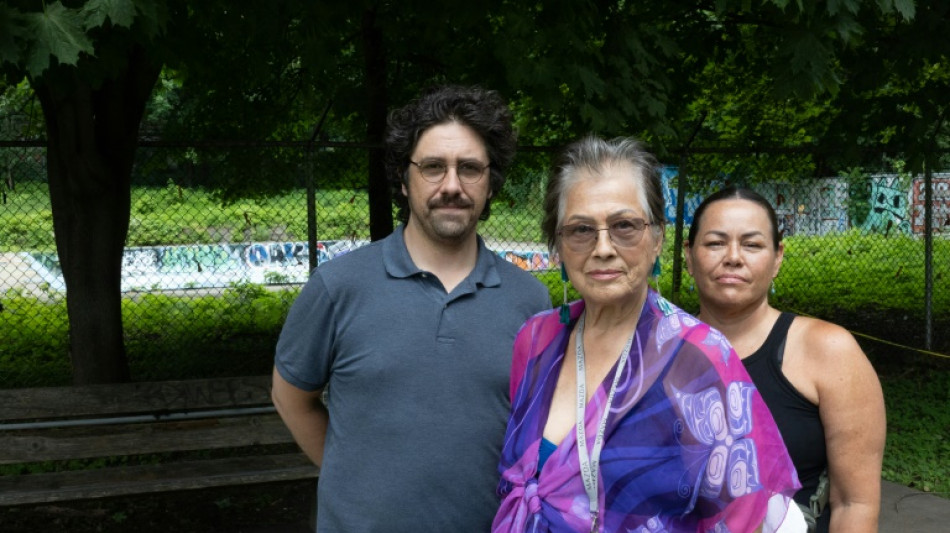
-
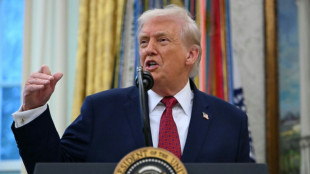 BBC says will fight Trump's $10 bn defamation lawsuit
BBC says will fight Trump's $10 bn defamation lawsuit
-
Stocks retreat ahead of US jobs, oil drops on Ukraine hopes
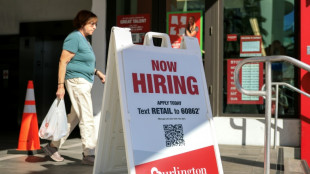
-
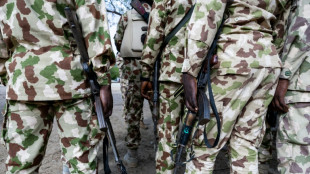 Suicide bomber kills five soldiers in northeast Nigeria: sources
Suicide bomber kills five soldiers in northeast Nigeria: sources
-
EU set to drop 2035 combustion-engine ban to boost car industry
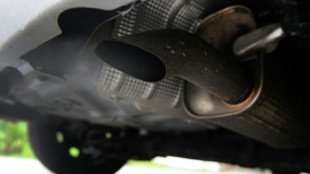
-
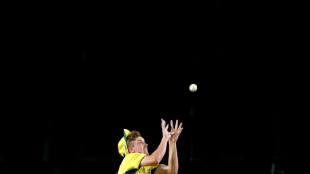 Australia's Green sold for record 252 mn rupees in IPL auction
Australia's Green sold for record 252 mn rupees in IPL auction
-
Elusive December sun leaves Stockholm in the dark
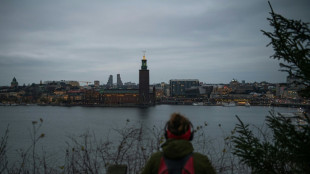
-
 Brendan Rodgers joins Saudi club Al Qadsiah
Brendan Rodgers joins Saudi club Al Qadsiah
-
Thailand says Cambodia must announce ceasefire 'first' to stop fighting
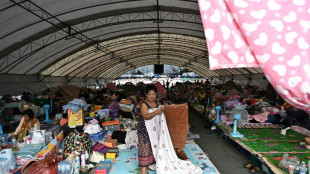
-
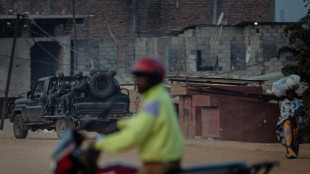 M23 militia says to pull out of key DR Congo city at US's request
M23 militia says to pull out of key DR Congo city at US's request
-
Thousands of glaciers to melt each year by mid-century: study
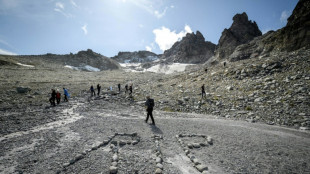
-
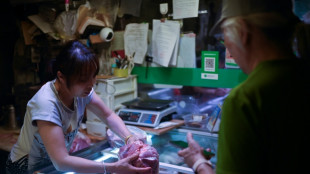 China to impose anti-dumping duties on EU pork for five years
China to impose anti-dumping duties on EU pork for five years
-
Nepal starts tiger census to track recovery

-
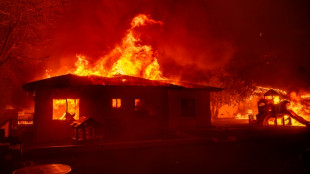 Economic losses from natural disasters down by a third in 2025: Swiss Re
Economic losses from natural disasters down by a third in 2025: Swiss Re
-
Indonesians reeling from flood devastation plea for global help
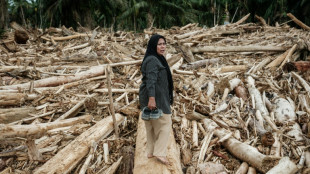
-
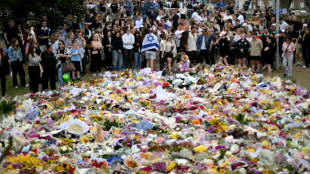 Timeline: How the Bondi Beach mass shooting unfolded
Timeline: How the Bondi Beach mass shooting unfolded
-
On the campaign trail in a tug-of-war Myanmar town
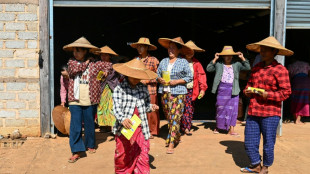
-
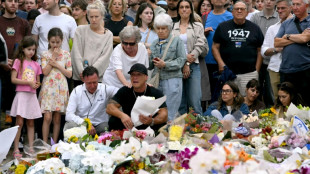 Bondi Beach suspect visited Philippines on Indian passport
Bondi Beach suspect visited Philippines on Indian passport
-
Kenyan girls still afflicted by genital mutilation years after ban
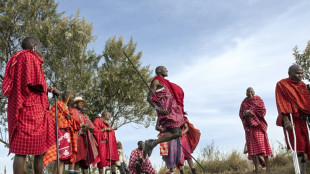
-
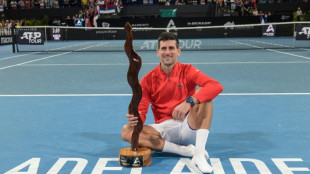 Djokovic to warm up for Australian Open in Adelaide
Djokovic to warm up for Australian Open in Adelaide
-
Man bailed for fire protest on track at Hong Kong's richest horse race
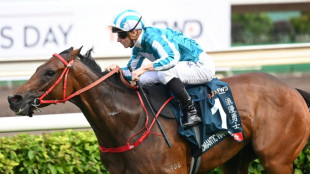
-
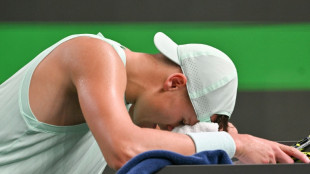 Men's ATP tennis to apply extreme heat rule from 2026
Men's ATP tennis to apply extreme heat rule from 2026
-
Cunningham leads Pistons past Celtics, Nuggets outlast Rockets

-
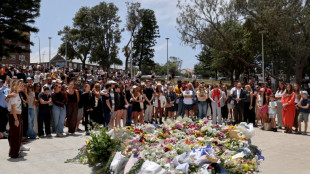 10-year-old girl, Holocaust survivors among Bondi Beach dead
10-year-old girl, Holocaust survivors among Bondi Beach dead
-
Steelers edge towards NFL playoffs as Dolphins eliminated

-
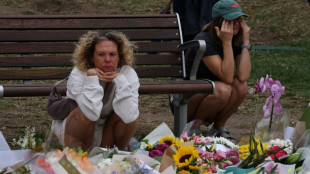 Australian PM says 'Islamic State ideology' drove Bondi Beach gunmen
Australian PM says 'Islamic State ideology' drove Bondi Beach gunmen
-
Canada plow-maker can't clear path through Trump tariffs
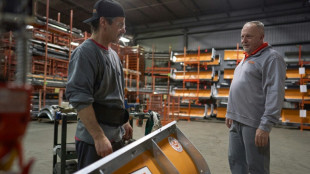
-
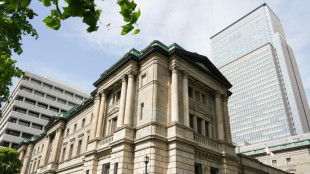 Bank of Japan expected to hike rates to 30-year high
Bank of Japan expected to hike rates to 30-year high
-
Cunningham leads Pistons past Celtics

-
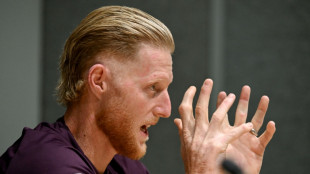 Stokes tells England to 'show a bit of dog' in must-win Adelaide Test
Stokes tells England to 'show a bit of dog' in must-win Adelaide Test
-
EU to unveil plan to tackle housing crisis
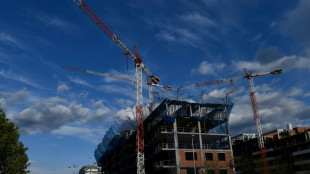
-
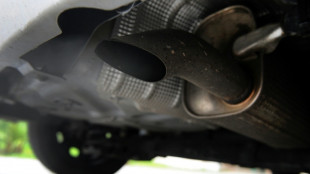 EU set to scrap 2035 combustion-engine ban in car industry boost
EU set to scrap 2035 combustion-engine ban in car industry boost
-
Australian PM visits Bondi Beach hero in hospital
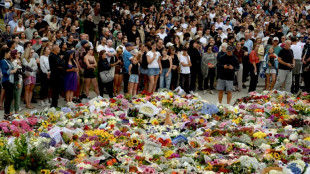
-
 'Easiest scam in the world': Musicians sound alarm over AI impersonators
'Easiest scam in the world': Musicians sound alarm over AI impersonators
-
'Waiting to die': the dirty business of recycling in Vietnam
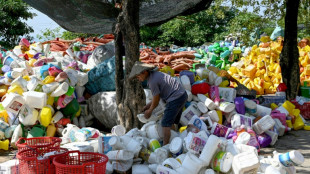
-
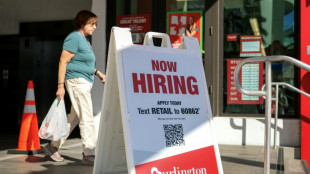 Asian markets retreat ahead of US jobs as tech worries weigh
Asian markets retreat ahead of US jobs as tech worries weigh
-
Security beefed up for Ashes Adelaide Test after Bondi shooting

-
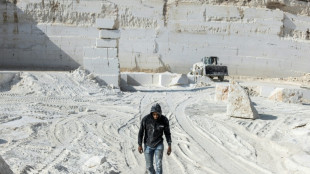 Famed Jerusalem stone still sells despite West Bank economic woes
Famed Jerusalem stone still sells despite West Bank economic woes
-
Trump sues BBC for $10 billion over documentary speech edit
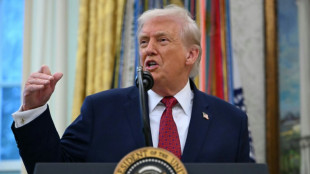
-
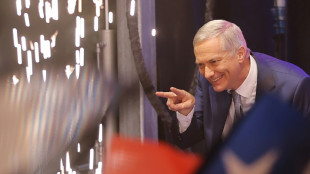 Chile follows Latin American neighbors in lurching right
Chile follows Latin American neighbors in lurching right
-
Will OpenAI be the next tech giant or next Netscape?
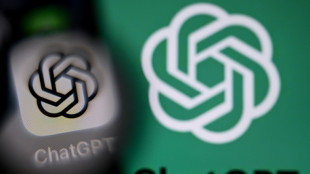
-
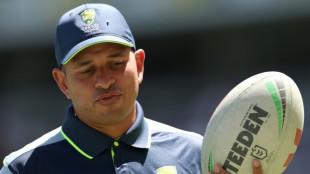 Khawaja left out as Australia's Cummins, Lyon back for 3rd Ashes Test
Khawaja left out as Australia's Cummins, Lyon back for 3rd Ashes Test
-
Australia PM says 'Islamic State ideology' drove Bondi Beach shooters
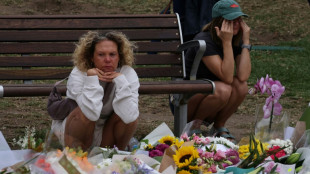
-
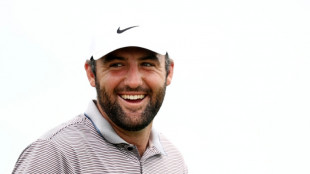 Scheffler wins fourth straight PGA Tour Player of the Year
Scheffler wins fourth straight PGA Tour Player of the Year
-
Tax1099 expands its E-Filing Suite with the launch of 990 series for Nonprofits

-
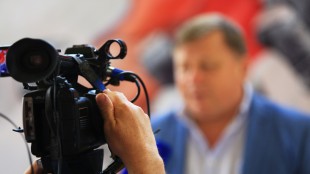 How to Choose the Best Plastic Surgeon in Tampa, FL: Gruber Plastic Surgery Releases Patient Safety Checklist
How to Choose the Best Plastic Surgeon in Tampa, FL: Gruber Plastic Surgery Releases Patient Safety Checklist
-
EMCORE Environmental Test Services Officially Launches in Budd Lake, New Jersey

-
 Silver Wolf Completes Acquisition of the Ana Maria Project
Silver Wolf Completes Acquisition of the Ana Maria Project
-
Anew Climate Announces Acquisition of P6 Technologies' Carbon Intensity Platform

-
 Abasca Resources Provides Exploration Update at its Loki Flake Graphite Deposit and Granting Stock Option
Abasca Resources Provides Exploration Update at its Loki Flake Graphite Deposit and Granting Stock Option
-
The U.S. Polo Assn. Palm Beaches Marathon Celebrates Record-Breaking Weekend in West Palm Beach, Florida


Indigenous mothers fight to search CIA experiment site in Montreal
A group of Indigenous women are hoping to stop the bulldozers at a former Montreal hospital which they believe could hold the truth about children still missing from a grisly half-century-old CIA experiment.
They have spent the last two years trying to delay the construction project by McGill University and the Quebec government.
"They took our children and had all kinds of things done to them. They were experimenting on them," said Kahentinetha, an 85-year-old activist from the Mohawk community of Kahnawake, southwest of Montreal, who goes by just one name.
The activists are relying on archives and testimonies that suggest the site contains unmarked graves of children formerly interned at the Royal Victoria Hospital and Allan Memorial Institute, a neighboring psychiatric hospital.
In the 1950s and 1960s, behind the austere walls of the old psychiatric institute, the US Central Intelligence Agency funded a human experiments program called MK Ultra.
During the Cold War, the program aimed to develop procedures and drugs to effectively brainwash people.
Experiments were conducted in Britain, Canada and the United States, subjecting people -- including Indigenous children in Montreal -- to electroshocks, hallucinogenic drugs, and sensory deprivation.
"They wanted to erase us," said Kahentinetha.
A leading figure in the Indigenous rights movement who has traveled to Britain and the United States to denounce colonialism, she called this fight "the most important of (her) life."
"We want to know why they did this and who's going to take the blame for it," she said.
- Sniffer dogs -
In the fall of 2022, the mothers obtained an injunction to suspend work on a new university campus and research center at the site -- a project worth Can$870 million (US$643 million).
Fellow activist Kwetiio, 52, who also uses just one name, said they insisted on arguing the case themselves without lawyers, "because in our ways, no one speaks for us."
Last summer, sniffer dogs and specialized probes were brought in to search the property's expansive and dilapidated buildings. They managed to identify three areas of interest for excavations.
But, according to McGill and the government's Societe Quebecoise des Infrastructure (SQI), "no human remains have been discovered."
The Mohawk mothers accuse the university and the government infrastructure agency of breaching an agreement by selecting the archaeologists who did the search and then ending their work too soon.
"They gave themselves the power to lead the investigation of crimes that were potentially committed by their own employees in the past," says Philippe Blouin, an anthropologist working with the mothers.
Even though their appeal was dismissed earlier this month, they have vowed to continue their fight.
"People should know history, so that it does not repeat itself," said Kwetiio.
In recent years, Canada has opened its eyes to past atrocities.
Generations of Indigenous children were sent to residential schools where they were stripped of their language, culture and identities in what a 2015 truth and reconciliation report said amounted to "cultural genocide."
Between 1831 and 1996, some 150,000 Indigenous children were taken from their homes and placed in 139 such schools. Several thousand never returned to their communities.
In May 2021, the discovery of unmarked graves of 215 children at the Kamloops Indian Residential School in British Columbia started a national reflection on this dark chapter of Canadian history, while sparking searches for more graves across Canada.
"It was not only residential schools, it involved hospitals, sanatoriums, churches and orphanages too," said Kwetiio.
For her, what is most important is shedding light on what happened in order for "things to change," and to recreate "the harmony that we had before colonialism."
L.Davis--AMWN


